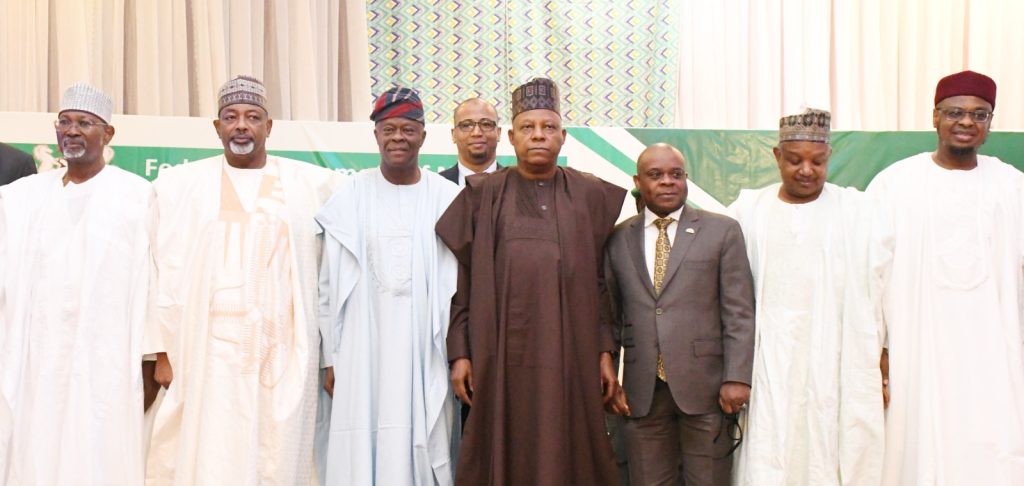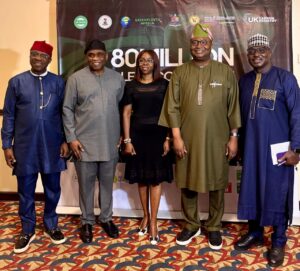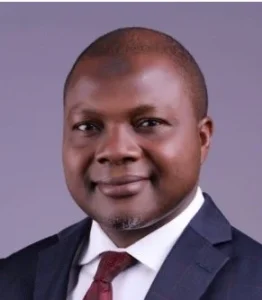FG hints at a leading hub of $7.7trn global halal market

FG hints at a leading hub of $7.7trn global halal market
Abdullateef Fowewe
Vice President Kashim Shettima has tipped Nigeria to become the number one hub of opportunities in the global halal economy, stating that the nation’s economic and demographic size puts it in a vantage position to map out a vibrant investment sector for the global halal economy projected to reach a market value of $7.7 trillion by 2025.
This was disclosed in a statement on Wednesday by the Senior Special Assistant to the Vice President on Media and Communications, Stanley Nkwocha.
Shettima noted this on Wednesday during the Halal Economy Stakeholders Engagement Programme held at the Banquet Hall of the Presidential Villa, Abuja.
He stressed that Nigeria must first reassess its weaknesses and prioritise its strength to achieve this tremendous economic feat.
He said, “For Nigeria to become a hub of opportunities in the global halal economy, we must prioritise our strengths and reassess our weaknesses. Today’s engagement provides a platform for us to collaborate with key international organisations.
“This will allow us to develop a comprehensive halal ecosystem and agree on strategies that will position Nigeria as a top halal exporter, targeting high-value markets.”
However, he commended the private sector for its immense contributions to driving the halal economy, particularly in the financial sector, and encouraged all stakeholders to partner with the administration of President Bola Tinubu in delivering the halal ecosystem.
“To ensure this, we must attract international investment by showcasing the vast opportunities within Nigeria’s halal sector through investor summits, roadshows, and business matchmaking events.
“The expansion of regional trade, particularly through the African Continental Free Trade Area also provides us with a pathway to become a leading supplier of halal goods and services across Africa.
“Therefore, we must increase public awareness through strategic orientation campaigns, specialised training programmes, and deeper engagement with the global market to elevate the visibility and competitiveness of Nigeria’s halal ecosystem,” he said
Describing halal as an economy that accommodates all players and stakeholders, Shettima noted that the halal market holds vast potential that aligns with the overarching agenda of Tinubu.
Why emphasising how Nigeria will become a leading hub for investment in the halal economy, Shettima said, “Nigeria’s economic and demographic size gives us a unique advantage in developing a vibrant halal investment sector.
“With the global halal economy projected to reach a market value of $7.7 trillion by 2025, this opportunity is not only recognised by Muslim-majority countries but also seized by non-Muslim nations, which have become leading exporters of halal products. They understand that the halal ecosystem is designed to meet the highest standards of quality, safety, and sustainability preferred by specific consumers.
“This alignment with ethical principles and rigorous standards provides a compelling avenue for investment and commerce and reinforces our commitment to fostering a dynamic halal economy in Nigeria.”
The Vice President further established that the lack of clarity and understanding surrounding compliance with investments in the halal economy had concealed vast potential in savings, business ventures, and investments.
He however expressed delight that in an era of knowledge and enlightenment, more Nigerians are now getting rid of outdated concerns and are, instead, embracing the need to have a say in how their money is invested.
He enunciated, “They seek secure products and services that align with the principles of transparency and ethical certainty, free from interest-driven practices. We must, however, note that Nigeria has already embraced the halal economy.
“We have flourishing financial institutions that offer profit-sharing and investment opportunities that resonate with the expectations of savers and investors, regardless of their faith. The remarkable success of Islamic finance instruments, such as Sukuk, which have funded infrastructure projects across the country, is a testament to the widespread appeal of halal finance.
“As Islamic banks continue to penetrate international markets, we are inspired to position ourselves as leaders in this growing sector, ensuring that Nigerians fully explore the opportunities it provides.”




